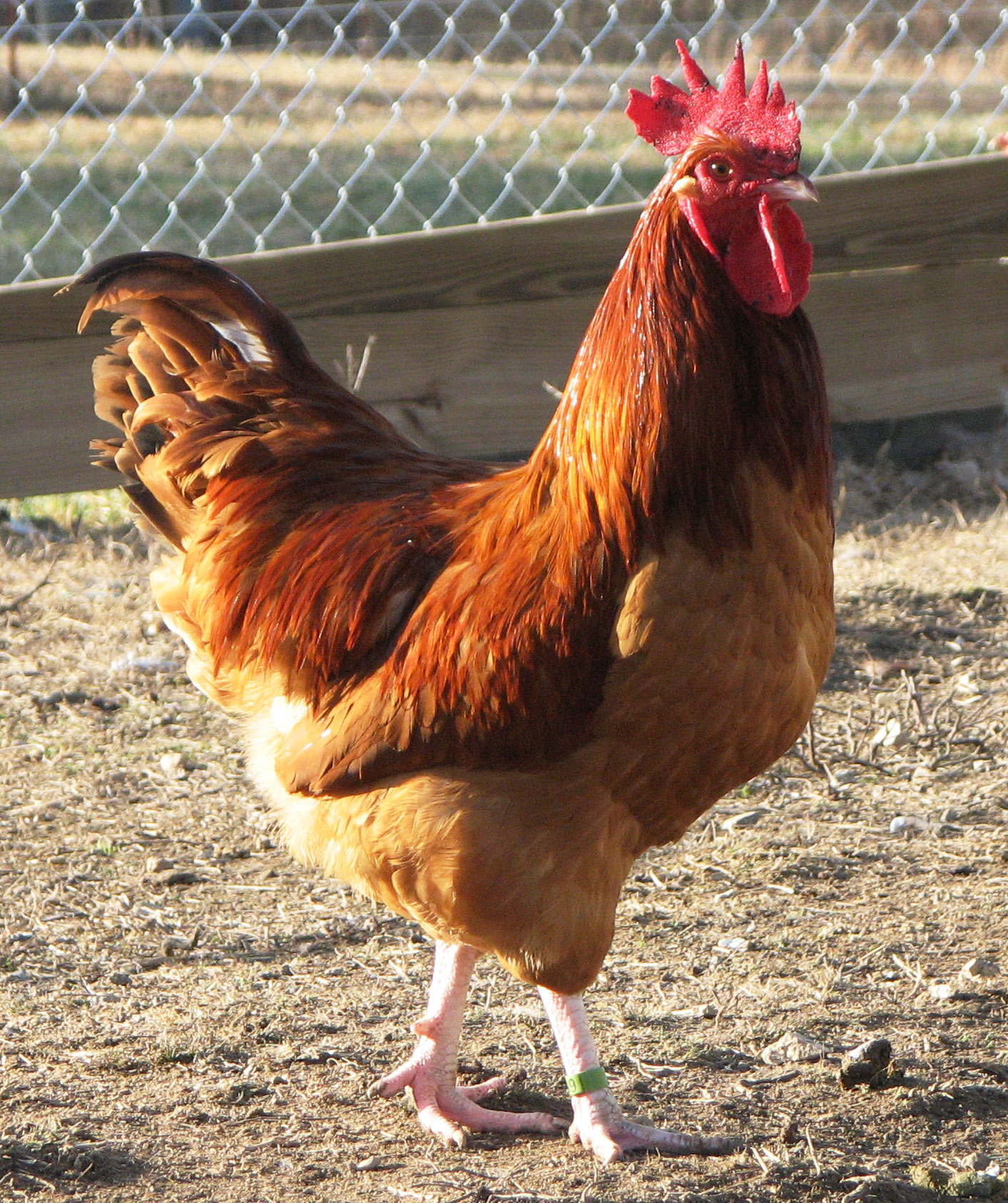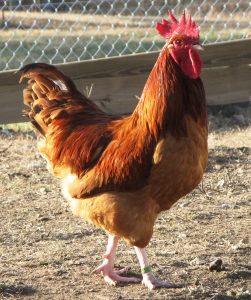
It’s a problem every chicken keeper eventually faces: What to do with unwanted roosters. If you purchase chicks, or hatch your own, you’ll have this problem sooner rather than later. Even sexed chicks that are sold as pullets (young hens) almost invariably include one or more cockerels (young roosters). If you end up with more roosters than you need, you live where regulations won’t allow you to keep a rooster or you simply prefer not to keep a rooster in your flock, here are a few suggestions for how to deal with the situation.
Rehoming
Rehoming a rooster can present a challenge, especially where a lot of other local chicken keepers are trying to do the same thing. Unless the rooster is a rare breed, or is a show quality specimen, your best chance for rehoming is to offer it for free. You might earn a few dollars, and attract more interest, if you can spare a hen or two to go with the unwanted rooster. To entice takers, include a photo showing how handsome the rooster is. Some good places to advertise your offer include these:
- Chicken Meetup: If your community has a chicken meetup, it’s a great place to find people who share chicken keeping ideas and swap birds.
- Craigslist: You can list poultry in the farm+garden section of the classified ad website Craigslist, as well as in the free section for give-aways.
- Local Sales Network: Operating primarily in the southeast, this site is similar to Craigslist, but has a specific poultry page under livestock.
- Local Animal Shelter: Some animal shelters are overrun with roosters, others have no facilities for poultry, but might know someone looking for a rooster.
- Animal Sanctuary: Like shelters, some sanctuaries have too many roosters, others don’t accept them, but might offer suggestions regarding takers.
- Freecycle: Is a good place to give things away, if you’re lucky to live where the local site is among the more active ones.
- Facebook group: Nearly every community has a Facebook group where local citizens network about all sorts of things, including rooster give-aways.
- Feed store: Many feed stores have bulletin boards where you can post notices, and some hometown stores may display your rooster and give it away or sell it for you.
- Veterinary office: Like feed stores, veterinarians often have bulletin boards where you can pin a notice about your available rooster.
- 4-H group: Members of a local 4-H group — located through your county’s extension office — may be willing to take your roost, provided it doesn’t have an aggressive temperament.
- Swap meet: Local poultry clubs often host swap meets where members network and exchange or sell birds.
- Livestock auction: If the rooster is of show quality, is rare, or is from a valuable blood line, a livestock auction will likely find a buyer.
- Newspaper: Local newspapers sometimes offer cost-free classified ads for anything being given away.
A contentious issue among many chicken keepers, especially in urban and suburban areas, is the possibility that the new owner may intend to butcher the rehomed rooster. Those who adamantly stipulate that their rooster must go to a happy forever home may have a difficult time disposing of the unwanted bird. Other chicken keepers have the attitude that once a rooster has been sold or given away, it’s the new owners’ business what they do with it.
Butchering
For many chicken keepers, especially those in rural areas, homegrown chicken dinner is one of the benefits of keeping a flock. Rooster meat is best right around the time the young bird starts crowing. If the rooster has grown old and tough, the meat can be salvaged by using a pressure cooker. Even the least meaty rooster makes excellent soup stock. YouTube offers numerous videos on how to butcher a chicken for meat.
If you prefer not to eat it yourself, you could turn an unwanted rooster into pet food. One popular option is to grind the meat, add rice (for dogs, not for cats), cook it, then freeze it in meal-size portions.
Even if you do not intend to eat the rooster or feed it to pets, sometimes the most humane option is a swift death, followed by cremation or deep burial. YouTube offers several videos on how to humanely kill a chicken.
Guarantees
“Sexing is not a perfect science,” says Jeff Smith of Cackle Hatchery. “No hatchery can guarantee more than 90% accuracy, which means at least 10% of each pullet order is likely to be cockerels. Unless we’re short of pullets at the time of shipment, we try to include one or two extra pullets to make up the difference. Our Cackle Hatchery guarantee includes a refund of the pullet price for any cockerels in excess of 10% of pullets ordered, for claims made on chicks no more than 12 weeks old.
“Some breeds — such as true Ameraucanas and French Marans — are more difficult to sex than others, making the accuracy more like 70 to 80%. We do not offer sexing for all the breeds we sell, either because the accuracy of professional sexing for those breeds is not good enough for customer satisfaction, or because sexing is too hard on chicks of those breeds. We do not have any guarantees on percentages of males or females for not sexed/straight run chicks.”
Regardless of a hatchery’s guarantee, please don’t expect any hatchery to take back unwanted roosters. Likewise, don’t expect a hatchery to reimburse your feed, time, and trouble for having raised an unwanted bird.
You can avoid ending up with roosters by purchasing sex link pullets, which are visually different from cockerels at the time of hatch. Alternatively, you could purchase either mature hens or started pullets, which are old enough to verify their sex.
And that’s today’s news from the Cackle Coop.
Gail Damerow, author, Storey’s Guide to Raising Chickens


